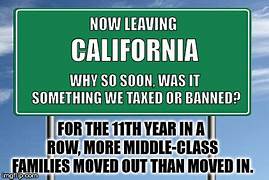When you insult more than 70% of the American population, why would you expect folks to continue buying your products? When you tell 100% of the American public you prefer corrupt elections with fraud being the order of the day, why should anyone buy your product. Hollywood has demand and abused the American public for so long, of course they lost 58% of the viewing audience foe the Oscars. Now Coke is finding out that telling its employees must become less white, as if they could tell their employees to be less black, would not have an effect on the sale of their product.
“It has been nothing less than a consistent failure with all of the various business entities which rose up in protest of the Georgia election law. Major League Baseball pulled its All-Star Game in the name of racial support, only to place the game in lily-white Denver. Delta Airlines had its CEO mouthing off in opposition of the law, only to have it exposed that he was present during the crafting of the bill. In Hollywood, Will Smith peacocked about pulling his movie project out of three states, only to decide on shooting in Louisiana, a state with more restrictive voting laws.
In like fashion, the CEO of Atlanta-based Coca-Cola came out and gave a tongue-lashing on CNBC about the law. James Quincy said, “We always opposed this legislation,” on the Power Lunch program. “Now that it’s passed we are coming out more publicly.” But then two things transpired; the public reaction to his stance was harsh, and the man who declared his company was coming out became more shut-in on the matter.
Oh, a history lesson: As you know one of the current Coke brans is something called FANTA. Actually, that was a brand started by Coke in the late 1930’s—in Nazi Germany—because they could not sell Coke under Hitler. Literally Coke has a brand approved by the Nazi government.
Poll Shows After Coke CEO Poured on Outrage at Georgia Election Law, Public Support Goes Flat

By Brad Slager, RedState, 4/23/21
How do you rise to this level in business while making these decisions?
Mere weeks after going public with stern words about the new election law in Georgia, Coca-Cola has become far more muted in its corporate bellowing. Now, we know why. A new poll has come out to show more than pushback from select citizens has taken place; there is widespread rejection of the company’s bold pronouncement, becoming just the latest in a growing list of companies who have suffered self-imposed, negative PR.
It has been nothing less than a consistent failure with all of the various business entities which rose up in protest of the Georgia election law. Major League Baseball pulled its All-Star Game in the name of racial support, only to place the game in lily-white Denver. Delta Airlines had its CEO mouthing off in opposition of the law, only to have it exposed that he was present during the crafting of the bill. In Hollywood, Will Smith peacocked about pulling his movie project out of three states, only to decide on shooting in Louisiana, a state with more restrictive voting laws.
In like fashion, the CEO of Atlanta-based Coca-Cola came out and gave a tongue-lashing on CNBC about the law. James Quincy said, “We always opposed this legislation,” on the Power Lunch program. “Now that it’s passed we are coming out more publicly.” But then two things transpired; the public reaction to his stance was harsh, and the man who declared his company was coming out became more shut-in on the matter.
Not long after these companies voiced their opposition, a quorum was called with over 100 corporations, CEOs, and celebrities who went on to sign a letter stating they opposed new laws that restricted voting rights. Notably absent from the vociferous list was Delta — and Coca-Cola. It would appear as if the company had come to a realization that speaking out on the matter led to customers walking out on purchasing its product.
Rasmussen recently conducted a poll on the issue, asking respondents specifically what their impression was of the company responding as it did to the law. After an initial message saying that Republicans were largely the ones in opposition, a follow-up stated that they found multiple net-loss, demographic categories.
What is most revealing is that there was little support to be found across the spectrum of classifications. The numbers look like this, when asked if they would be more or less likely to purchase Coke following the company announcements:
- Adults: less likely/more likely 37/25
- Men: 40% less likely
- Women: 34% less likely
- Black: 33% less likely (vs 23 more)
- GOP: 52% less likely
- Dem: 24% less likely
These are jarring numbers across the board, but the most telling data point is that response from Black respondents. The entire basis of the outrage at this law — from Quincy, all the way up to President Biden, who has constantly described the law as “Jim Crow on steroids” — was to express rebuttal to the content of the legislation and support the allegedly oppressed black community, and yet here are those very people opposing the position being taken.
This is clearly seen to be not a partisan reaction but a blanket response in the negative. How much this will become reflected in sales and revenue remains to be seen, but it is obvious that this has not been embraced by the general public, and a company subsists on its public image. The amazing thing to consider here is that the best result would have been achieved by doing the easiest thing.
James Quincy thought he was helping his cause by going out of his way to virtue signal in front of the cameras when he would have been far better off simply by doing nothing.



